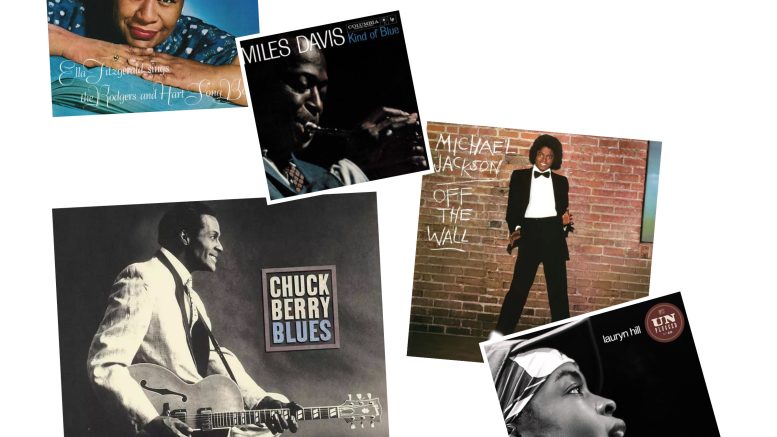Black musicians have shaped and moulded the musical landscape into what it is today. As I reflect on a few of my personal favourite musicians, it is so glaringly obvious that music history is Black history.
Born and cultivated in the Black communities of New Orleans, La., jazz is a criminally overlooked genre in today’s age that has transcended its boundaries to influence R&B, pop, hip hop and rap with its harmonies and rhythms.
John Coltrane with his saxophone and Miles Davis with his trumpet have immortalized themselves as influential figures in jazz. Davis acted as the conductor of the genre, changing its trajectory several times with his ever-evolving style. Davis’s close collaborator Coltrane also revolutionized jazz with his introduction of innovative techniques that aided his distinctive saxophone.
Another pillar of jazz is Louis Armstrong, a trumpet player and singer who left his mark on instrumentalists and singers alike with his skill as a soloist and his rich, gritty, bewitching voice.
His vocal influence can be seen in the music of artists such as Frank Sinatra and Billie Holiday, as well as Ella Fitzgerald, another jazz favourite who gained acclaim for her velvet vocals and scat singing. Armstrong and Fitzgerald duets remind me of perfect Sundays.
Often overlooked, gospel singer and guitar prodigy Sister Rosetta Tharpe sensationalized her unique style into a genre and cemented herself as the godmother of rock ‘n’ roll. Her influence carried on to other musicians like Chuck Berry, who then became the prototype for a generation of brilliant guitarists and musicians including Jimi Hendrix and the Beatles. Muddy Waters, a prominent figure in post-war American blues, electrified the genre and served as inspiration for rock through his contribution to the creation of Chicago blues. If it wasn’t for Waters, bands like The Rolling Stones wouldn’t exist.
As we move along to soul, Sam Cooke served as the blueprint. Cooke was a singer who brought gospel rhythm to mainstream audiences with his silky smooth vocals. Many icons followed in his footsteps, including Al Green, Stevie Wonder, Otis Redding, Marvin Gaye and Michael Jackson.
We cannot talk about soul without mentioning the Queen of Soul herself, Aretha Franklin. Franklin merged gospel, blues, jazz and R&B, and is still listened to and sampled by artists today. Using her music and influence, she was also actively involved in the American civil rights movement alongside Nina Simone, a gifted vocalist and pianist. Simone was one of the most bold and outspoken musicians during this time with her protest songs, and was a force to be reckoned with on and off the stage.
New York City was deemed the birthplace of hip hop when MCing was brought to life at 1520 Sedgwick Avenue in the Bronx. Since then, many notable rappers have emerged from its boroughs, including Nas.
Drawing inspiration from blues and jazz, Nas’s debut album Illmatic sent ripples through hip hop with his poetic introspective lyrics and rhymes. The Notorious B.I.G. is another New Yorker who made waves in hip hop. He was a trendsetter and a revered rapper on the East
Coast for his wit and flow, which have made his music a staple in my and many others’ playlists since his death.
Over in the West, 2pac reigned with his political lyricism and poetic knowledge that helped him dominate. 2pac received a lot of his influence from Public Enemy, a hip hop group from Long Island, N.Y. that radicalized the world of rap with political messages and beats.
Another noteworthy group is the Fugees and member Lauryn Hill, who broke barriers for female rappers with her sublime blend of hip hop and neo soul that won many people over. Hill’s debut record broke ground at the Grammy Awards for women musicians and hip hop as a genre.
A generation of the current R&B scene is said to have been inspired by Sade, a band led by Nigerian-British lead singer Helen Folasade Adu. Another significantly impactful musician on modern R&B was the late Aaliyah, who became known as the princess of R&B due to how her brief seven-year career changed the course of pop, hip hop and R&B. Rihanna and Beyoncé are among artists whose work has been influenced by hers.
Black artists have continued to be the blueprint, foundation and pillars of the music industry for decades.



